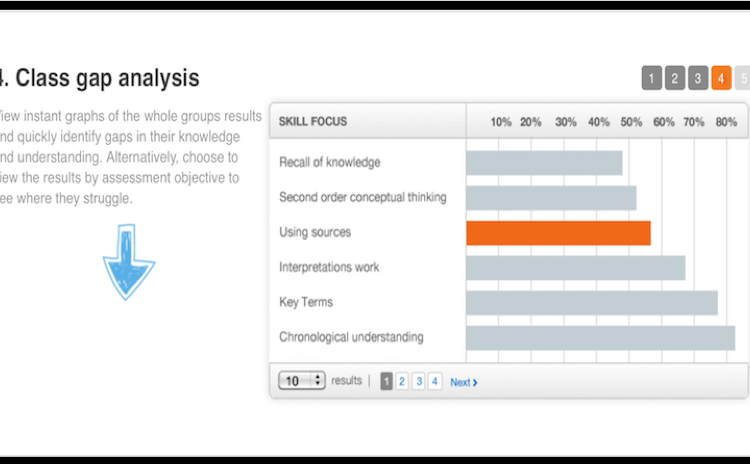Clearly many schools across the country have been sharing Rosenshine’s principles with their teachers during CPD sessions recently. Twitter is full of education guru’s retweeting how Rosenshine is the next best thing in education since sliced bread (or feedback, or metacognition).
So what are these revolutionary principles for teaching? Well here they are:
Rosenshine’s principles
- Begin a lesson with a short review of previous learning.
- Present new material in small steps with student practise after each step.
- Ask a large number of questions and check the responses of all students.
- Provide models.
- Guide student practice.
- Check for student understanding.
- Obtain a high success rate.
- Provide scaffolds for difficult tasks.
- Require and monitor independent practice.
- Engage students in weekly and monthly review.

On one level this is great because any advice that helps people enhance and develop their practice is a good thing in my book. It distils some clear principles for teachers to use. It helps articulate the ‘how to teach’ well in an easy to digest format.
For inexperienced teachers, of those struggling, such principles can be seen as a god-send.
Stating the bleedin’ obvious?
There are in fact 17 principles if you read one of the research papers. And each one must be effective and therefore adhered to because they ‘research-based’, and some of this research base is ‘cognitive science’ so, clearly its the gospel isn’t it?
Well this principles were actually written in the 1970s, for a very different audience of teachers.
And, sorry to be dismissive, but if you asked any experienced, reflective practitioner to write about effective teaching strategies that they knew worked in the classroom, I bet they would come up with a similar list. After all isn’t it better to model something than just expect kids to know? Don’t we need to ask questions to check then develop learning?
Indeed before everyone was obsessed with ‘evidence-based educational research’ teachers used to share such lists.
In Hampshire for example from the mid 1990s, each quarter the History newsletter, History Matters was full of such advice. Whole articles were given over to chunking material and modelling. There was no ‘research base’ here, just wisdom passed on from the experienced and effective.
Just because Rosenshine’s principles are ‘research base’ and it says ‘instruction’ in the title (in today’s twitter world ‘direct instruction’ = good practice and anyone who thinks otherwise faces fierce criticism), we get SLTs buying into it (like Hattie before and pupils responding to comment marking before that and AfL before that).
Why are School Leaders so interesed?
Sorry to be cynical here, but I think it may be down to the fact that such a list is easy to impart across a whole school via a generic whole school INSET. The principles are then easy to monitor by
I can imagine feedback conversations: ‘Well, I didn’t see a re-cap of prior learning in the lesson so it wasn’t good enough.’
This could happen, even if the re-capping of prior learning was ineffective, or the prior learning was full of misconceptions.
My fear is that the focus will be on the ‘how’ to deliver lessons, and this will take time away from deep discussions and thinking about ‘what’ is it that we want pupils to learn. Both are important. But without the ‘what’ the ‘how’ is somewhat irrelevant.
Thinking more deeply about the ‘what’ and not just the ‘how’
To consider what you want you pupils to learn and to
As we know, knowledge in history falls into two categories, substantive (stuff, facts, dates and names) and disciplinary knowledge (second-order order concepts). Knowing what substantive knowledge to teach and when is one conversation that we should be having. This can be tricky. What should we include in our curriculum? What stories or themes do we want our classes to remember?
Knowing the disciplinary thinking you want your students to engage with, and the knowledge to be gained
These questions are much harder and involve more teacher knowledge. If schools do not allow subject teachers to focus on such




6 comments
An exemplary critique that I fully agree with. I am already experiencing the misguided whole school INSET route implementation of this. Discussion on the curriculum, what to teach and when has been entirely absent and I have received my first lesson visit feedback card showing which boxes I ticked and those principles needing work. After 32 years in the classroom I feel that this Rosenshine wave will be the end of my career – not because I have any issues with the principles but because I see weak leadership, scrambling for ideas on how to move on mediocre circumstances but without once considering the in house experience they could be drawing on.
I am in my 44th year of teaching with decades of positive value added. I have had to tolerate downright lies and had to go along with it. Rosenshine is what effective teachers do.
Brain Gym
Learning Styles
Differentiation
Teacher Centered is better that didactic
So many of which are lies or just fairy tales there are other myths
As for Growth Mindset? Dropped because it’s not effective and it’s not proven. Don’t get me started
Rosenshine is excellent and backed up with evidence.
Just come across this article. I was beginning to think that I was a bit mad for thinking that there is nothing special about Rosenshine. I mean ‘ask questions’ – seriously!? Who has to actually be reminded as a teacher to ask questions?
The trouble is, by reducing teaching to a ‘tick list’, it stifles creativity. I’m in a position where learning walks are looking for evidence of Rosenshine’s principles in action. When learning walks can happen at any time, I can’t afford to take a pedagogical risk in a lesson that doesn’t necessarily follow these principles in case someone drops in, judges my teaching to be inadequate because within that 5 minute lesson snapshot I wasn’t demonstrating that I can follow a tick list. This would then impact my pay progression.
An unfortunate illustration of the education system we live in in England. Obsessed with silver bullets.
I completely agree with you Richard. Rosenshine is ‘stating the bleeding obvious’ (and not new) as millions of teachers will attest, but it is part of the current zeitgeist for ‘faddish’, easily packaged, sound bite solutions to school improvement. Educational research has become a growth industry with everyone jumping on the band wagon. What’s driving this maybe, is a sincere wish for school improvement, but for most HTs in my experience, it is the heavy hand of Ofsted that is driving these changes because Heads are reactive and fearful of a poor inspection. I taught in Fordingbridge 20 years ago and viewed the Hampshire magazine ‘History Matters’ as revolutionary. It was years ahead of its time with no other educational borough in the country offering similar guidance and support. I still refer to my back issues when I train NQTs! The advice given was no different to the soundbites received today about blah blah blah latest research. ‘Old hands’ like me have probably seen it and done it before but for my colleagues who are retired, they know that nothing is ever new, because the same ideas just get repackaged, recycled and re-marketed over and over again for different generations giving truth the adage that ‘what goes around, comes around’. Meanwhile, someone is making a packet marketing all these ideas (again)!
I completely agree with you Richard. Rosenshine is ‘stating the bleeding obvious’ (and not new) as millions of teachers will attest, but it is part of the current zeitgeist for ‘faddish’, easily packaged, sound bite solutions to school improvement. Educational research has become a growth industry with everyone jumping on the band wagon. What’s driving this maybe, is a sincere wish for school improvement, but for most HTs in my experience, it is the heavy hand of Ofsted that is driving these changes because Heads are reactive and fearful of a poor inspection. I taught in Fordingbridge 20 years ago and viewed the Hampshire magazine ‘History Matters’ as revolutionary. It was years ahead of its time with no other educational borough in the country offering similar guidance and support. I still refer to my back issues when I train NQTs! The advice given was no different to the soundbites received today about blah blah blah latest research. ‘Old hands’ like me have probably seen it and done it before but for my colleagues who are retired, they know that nothing is ever new, because the same ideas just get repackaged, recycled and re-marketed over and over again for different generations giving truth to the adage that ‘what goes around, comes around’. Meanwhile, someone is making a packet marketing all these ideas (again). Its a racket!
Thanks Alan, glad we experienced Hampshire History together. The arms length control of Ofsted does loom large. We are operating in the accountability age. With a new inspection framework that has certain Cog Science ideas at its core, and a content heavy KS4 curriculum, it is little wonder that His are driven down this route….